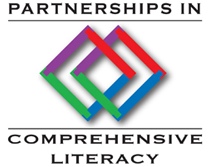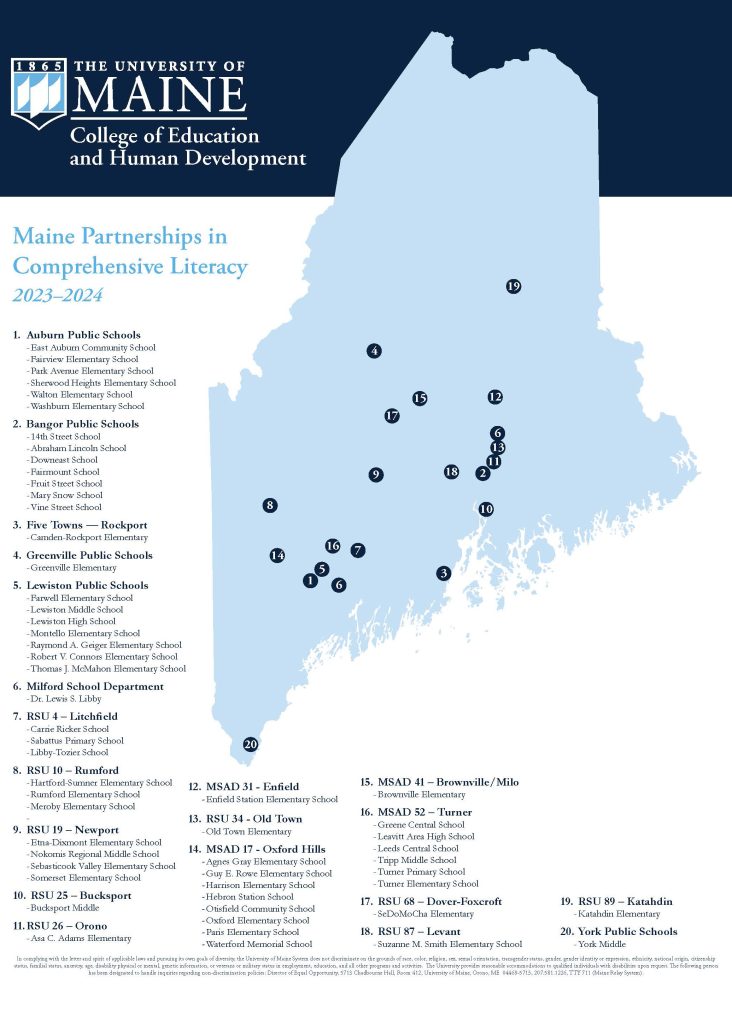Maine Partnerships in Comprehensive Literacy (MPCL)

Professional development, delivered as sustained, job-embedded coaching, maximizes the likelihood that teachers will translate newly learned skills and strategies into practice.”
-Joyce & Showers, 1996; Neufeld & Roper, 2003 (as cited in IRA, 2006, p. 3)
The Maine Partnerships in Comprehensive Literacy (PCL) model is a school-reform project dedicated to increasing student achievement. The model, developed at the University of Arkansas, Little Rock (UALR), uses literacy as a tool for measuring school change in four interrelated areas: student learning, teacher knowledge, school culture, and school processes. The logo of the interlocking diamonds symbolizes the dynamic, continuous relationship between a school’s literacy program and the educational agencies and policies that influence school improvement. The first diamond represents the relationship of four essential components within the school: classroom literacy framework, school-embedded professional development, intervention programs for struggling learners, and accountability and research. The second diamond represents the relationship between four educational agencies: public schools, universities, state education departments, and foundations. The power of the UALR model is symbolized in a partnership design that acknowledges school change as a dynamic, continuous process that requires commitment and collaboration at many levels.
University of Maine is recognized as a national leader in literacy reform. School districts and universities across Maine have partnered with the University Training Center for Comprehensive Literacy to influence literacy changes at the local, state and national levels.
Map of Maine Partnerships in Comprehensive Literacy school districts:

